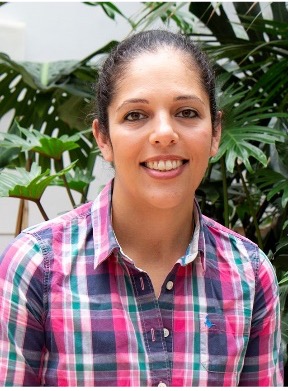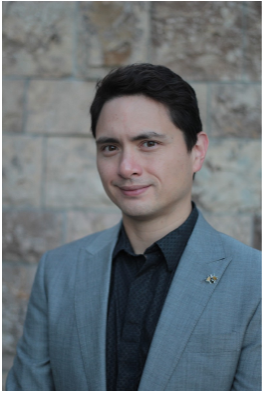Early Career Researcher Institute - Support for Postdocs
The Early Career Researcher Institute supports Postdocs from the start to the finish of their journey at Imperial and helps them make the most of their time as a researcher – to develop both professionally and personally.
- Courses and workshops
- Resources to help you navigate your career whether you are considering an academic path or a career outside academia
- Individual guidance including mock interviews and one-to-one support
- Access to networks
- Online resources including tip sheets and publications
- Wellbeing support
Find out more about the Early Career Researcher Institute
Departmental Postdoc Reps
The Department of Surgery and Cancer has a number of postdoc representatives, who form part of Imperial's Postdoc Reps Network and work in line with Postdoc and Fellows Development Centre to enable it to stay abreast of the needs and issues facing postdocs. Reps are the essential bridge between the Department and the postdoc community across campuses and play a vital role in championing postdoc issues via the People and Culture Committee.
What we do
Our postdocs reps help to organise workshops and tailored events for fellow postdocs, alone or in collaboration with the Early Career Researcher Institute, ensuring their views are heard and their issues tackled. The group provides a range of events, including:
- Regular scheduled coffee mornings to improve networking, and to obtain suggestions and feedback from the postdocs community
- The Annual Imperial College Biomedical Symposium, attended by postdocs, PIs and students, showcasing the postdoctoral research and facilitating multidisciplinary collaboration between the Departments.
- Workshops and courses to promote academic professional development, usually organised in South Kensington campus, our postdocs would like to see more organised events in Hammersmith as well
- Tailored events, such as CV clinics and Career Fairs, to offer advice on professional alternatives to academia.
If you want to find out more about the support and opportunities that are available, please get in touch with your relevant postdoc reps from the list below.
Postdoc reps
 Nadia is a Jennie Gwynn post-doctoral career development fellow in the Pain Research Group. Her research focuses on the development and use of evidence synthesis methods to narrow the translation gap between preclinical and clinical chronic pain research. Her aim is to better connect research silos using evidence synthesis methods to increase understanding of the biological mechanisms underlying chronic pain, improve the identification of drugs and drug targets and improve the methodological rigour and trustworthiness of preclinical and clinical research. As a proponent of open science practises and the UK Reproducibility Local Network lead, she is committed to disseminating best practise, offering training opportunities and advocating for strategic improvements to improve the trustworthiness of research. A former Army officer, she is passionate about sharing her expertise in leadership development to foster a more positive and inclusive research culture (e.g., https://leadershipethos.org/). She is currently working across the sector to expand access to leadership training that is grounded in values-based and responsible leadership, ensuring it is scaled up and aligned with priority needs. She is supporting equipping early career researchers with strong leadership skills, to empower them to navigate challenges, build collaborative teams, and drive meaningful impact in their fields.
Nadia is a Jennie Gwynn post-doctoral career development fellow in the Pain Research Group. Her research focuses on the development and use of evidence synthesis methods to narrow the translation gap between preclinical and clinical chronic pain research. Her aim is to better connect research silos using evidence synthesis methods to increase understanding of the biological mechanisms underlying chronic pain, improve the identification of drugs and drug targets and improve the methodological rigour and trustworthiness of preclinical and clinical research. As a proponent of open science practises and the UK Reproducibility Local Network lead, she is committed to disseminating best practise, offering training opportunities and advocating for strategic improvements to improve the trustworthiness of research. A former Army officer, she is passionate about sharing her expertise in leadership development to foster a more positive and inclusive research culture (e.g., https://leadershipethos.org/). She is currently working across the sector to expand access to leadership training that is grounded in values-based and responsible leadership, ensuring it is scaled up and aligned with priority needs. She is supporting equipping early career researchers with strong leadership skills, to empower them to navigate challenges, build collaborative teams, and drive meaningful impact in their fields.
 Katerina Vanessa Savva is a Research Associate at the NIHR HealthTech Research Centre, specializing in biomarker translational research and cost evaluation of innovations. With a Bachelor's degree in Biomedical Sciences and an MRes in Biomedical Research, she completed her PhD at Imperial College London, where she developed the Biomarker Toolkit—a tool designed to expedite the translation of biomarkers from bench to bedside, reducing costs and time. Katerina collaborates extensively with academia and industry to promote the clinical utilization of new innovations. Beyond her technical expertise, she is passionate about Equity, Diversity, and Inclusion (EDI) and is dedicated to supporting the career progression of postdoctoral researchers. She actively fosters a safe, supportive environment that promotes mental health and well-being among students and early career researchers, ensuring they have the opportunity to thrive in their careers.
Katerina Vanessa Savva is a Research Associate at the NIHR HealthTech Research Centre, specializing in biomarker translational research and cost evaluation of innovations. With a Bachelor's degree in Biomedical Sciences and an MRes in Biomedical Research, she completed her PhD at Imperial College London, where she developed the Biomarker Toolkit—a tool designed to expedite the translation of biomarkers from bench to bedside, reducing costs and time. Katerina collaborates extensively with academia and industry to promote the clinical utilization of new innovations. Beyond her technical expertise, she is passionate about Equity, Diversity, and Inclusion (EDI) and is dedicated to supporting the career progression of postdoctoral researchers. She actively fosters a safe, supportive environment that promotes mental health and well-being among students and early career researchers, ensuring they have the opportunity to thrive in their careers.
 Anke is an advanced research fellow and group leader in the division of cancer. Her research is focussed on drug resistance and finding new drug targets in cancer. I have been a postdoc rep in S&C since 2024 and been involved in organising seminars and social events for the postdoc community. She is passionate about supporting postdoc and fellows to process in their careers and ensure their voices are heard. Our Q&A with the HoDs are great ways to ask questions and raise concerns to ensure the postdoc community is appreciated and valued. I am keen to learn about how we can help so get in touch?
Anke is an advanced research fellow and group leader in the division of cancer. Her research is focussed on drug resistance and finding new drug targets in cancer. I have been a postdoc rep in S&C since 2024 and been involved in organising seminars and social events for the postdoc community. She is passionate about supporting postdoc and fellows to process in their careers and ensure their voices are heard. Our Q&A with the HoDs are great ways to ask questions and raise concerns to ensure the postdoc community is appreciated and valued. I am keen to learn about how we can help so get in touch?
 Dr. Patrick Kierkegaard leads the Cancer Technology Catalyst team at the Cancer Research UK Convergence Science Centre, a joint initiative between Imperial College London and the Institute of Cancer Research, London. His research focuses on utilising implementation science methodologies to accelerate the early-stage translation of cancer technologies. Dr. Kierkegaard is particularly interested in generating early evidence and optimising the contextual factors necessary for the successful adoption of cancer diagnostics and treatments into clinical care pathways, ensuring their integration into real-world healthcare settings.
Dr. Patrick Kierkegaard leads the Cancer Technology Catalyst team at the Cancer Research UK Convergence Science Centre, a joint initiative between Imperial College London and the Institute of Cancer Research, London. His research focuses on utilising implementation science methodologies to accelerate the early-stage translation of cancer technologies. Dr. Kierkegaard is particularly interested in generating early evidence and optimising the contextual factors necessary for the successful adoption of cancer diagnostics and treatments into clinical care pathways, ensuring their integration into real-world healthcare settings.

I’m a Postdoctoral Research Fellow in the Cancer Screening and Prevention Research Group, Department of Surgery and Cancer, based at the St Mary’s Campus. My research focuses on the aetiology of colorectal cancer, with a particular focus on the relationships with metabolites, and clinical and lifestyle factors. I am also actively involved in public and patient involvement and engagement activities.
Before completing my PhD at Imperial, I spent several years as a researcher at the London School of Hygiene and Tropical Medicine examining drivers of inequalities in cancer survival. I was also heavily involved with the Global Centre for Chronic Conditions, where I coordinated scientific seminars. After my PhD, I completed a postdoc at the WHO International Agency for Research in Cancer in Lyon, France. There I was involved in postdoc-led initiatives including the Early Career Scientist Organising Committee and my department’s postdoc drop-in clinics which provided weekly sessions for postdocs to discuss their work or seek help with issues.
In 2024 I returned to Imperial. I became a postdoc representative as I am keen to engage with other postdocs across Imperial campuses. Postdocs are central to the success of academic institutions, and I am motivated to advocate for better career progression opportunities and to facilitate postdocs working together collaboratively on both research and non-research projects. I am excited to get started in my new role!
